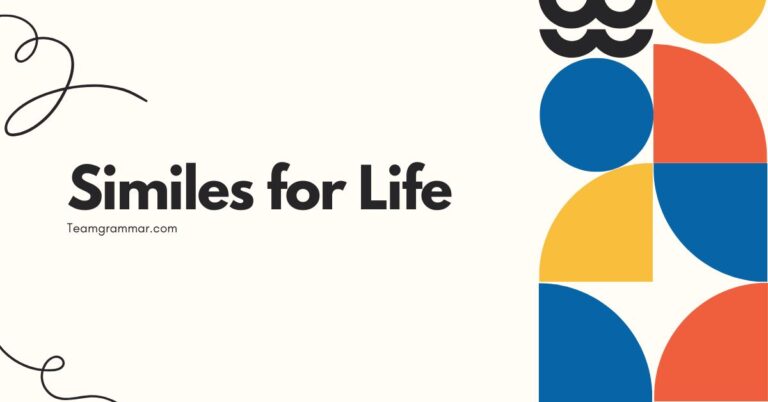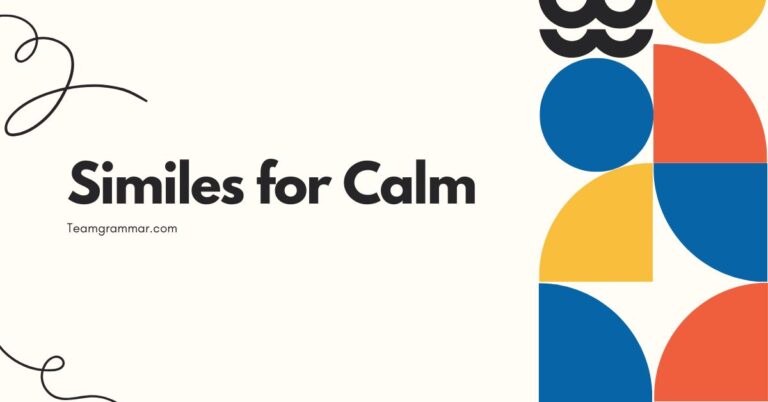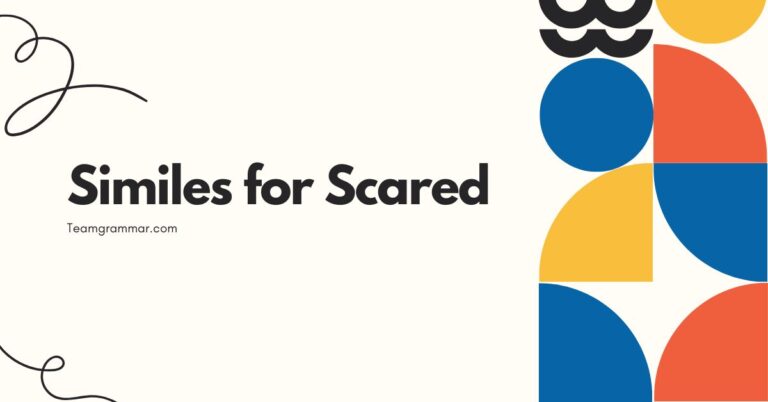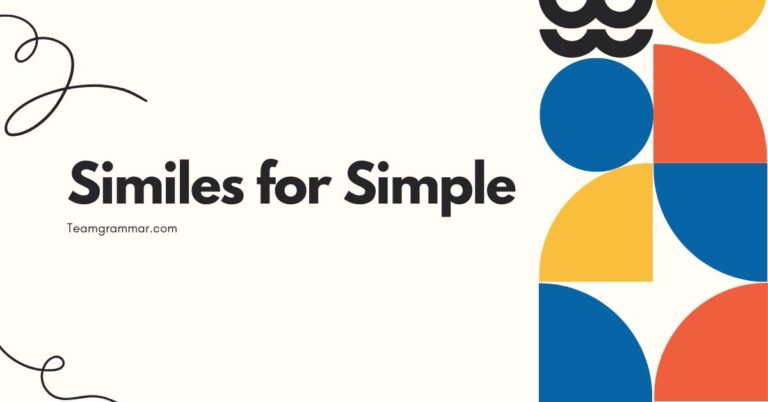43 Idioms for Smile: Expanding Your English Vocabulary
Understanding idioms is crucial for mastering English, as they add color, nuance, and cultural context to communication. Idioms related to smiling are particularly useful for expressing a wide range of emotions and reactions beyond simple happiness.
This article delves into various idioms for “smile,” exploring their meanings, origins, and usage. This comprehensive guide is designed for English language learners of all levels, from beginners to advanced speakers, who wish to enrich their vocabulary and improve their comprehension of idiomatic expressions.
By studying these idioms, you’ll gain a deeper understanding of the English language and be able to communicate more effectively and expressively.
Table of Contents
- Definition of Idioms for Smile
- Structural Breakdown of Smile Idioms
- Types and Categories of Idioms for Smile
- Examples of Idioms for Smile
- Usage Rules for Idioms for Smile
- Common Mistakes with Idioms for Smile
- Practice Exercises
- Advanced Topics
- FAQ
- Conclusion
Definition of Idioms for Smile
An idiom is a phrase or expression whose meaning cannot be understood from the literal meanings of its individual words. Instead, an idiom has a figurative meaning that is known through common use.
Idioms add richness and depth to language, allowing speakers to convey complex ideas and emotions in a concise and colorful way. Idioms related to “smile” are a subset of these expressions, specifically focusing on phrases that describe different types of smiles and their associated meanings.
Idioms for “smile” can be classified based on the emotion they convey, such as happiness, amusement, sarcasm, or mischief. They can also be categorized by their level of formality and the context in which they are typically used.
Understanding these classifications helps learners choose the appropriate idiom for a given situation. For instance, “grin like a Cheshire cat” suggests a broad, pleased smile, while “smirk” implies a more smug or self-satisfied expression.
Structural Breakdown of Smile Idioms
The structure of idioms for “smile” varies, but many follow common patterns. Some idioms are verb phrases, using “smile” as a verb and modifying it with adverbs or prepositions.
Others are similes, comparing the smile to something else to emphasize its characteristics. Furthermore, some idioms are metaphors, implying a connection between the smile and a broader concept or emotion.
Analyzing these structural elements helps learners understand how idioms are formed and how they convey meaning.
For instance, the idiom “beam with joy” is a verb phrase where “beam” modifies the verb “smile” to indicate intense happiness. The simile “grin like a Cheshire cat” compares the smile to the famous grinning cat from Alice in Wonderland, suggesting a wide and mysterious smile.
The metaphor “a smile played on her lips” implies that the smile is a subtle and fleeting expression. Each of these structures contributes to the overall meaning and impact of the idiom.
Types and Categories of Idioms for Smile
Idioms for “smile” can be categorized based on the emotion they convey, the intensity of the smile, and the context in which they are used. Here are some common categories:
1. Idioms Expressing Happiness
These idioms describe smiles that indicate joy, delight, or contentment. They often involve bright, genuine expressions of happiness.
2. Idioms Expressing Amusement
These idioms describe smiles that indicate amusement, laughter, or a sense of fun. They often involve playful or lighthearted expressions.
3. Idioms Expressing Sarcasm or Mockery
These idioms describe smiles that indicate sarcasm, mockery, or a lack of sincerity. They often involve subtle or twisted expressions.
4. Idioms Expressing Mischief or Secretiveness
These idioms describe smiles that indicate mischief, secretiveness, or a hidden agenda. They often involve sly or knowing expressions.
5. Idioms Expressing Affection or Warmth
These idioms describe smiles that indicate affection, warmth, or kindness. They often involve gentle and inviting expressions.
Examples of Idioms for Smile
Here are some examples of idioms for “smile,” organized by category, with explanations and example sentences.
Table 1: Idioms Expressing Happiness
The following table presents idioms that describe smiles of happiness, providing their meanings and example sentences to illustrate their usage.
| Idiom | Meaning | Example Sentence |
|---|---|---|
| Beam with joy | To smile radiantly with happiness. | She beamed with joy when she received the acceptance letter. |
| Grin from ear to ear | To smile very widely. | He was grinning from ear to ear after winning the competition. |
| Have a smile on one’s face | To be visibly happy or content. | She always has a smile on her face, even when things are tough. |
| Light up | To show happiness or excitement in one’s expression. | Her face lit up when she saw her friends arrive. |
| Wear a happy face | To appear cheerful and content. | Despite the difficulties, he tried to wear a happy face. |
| Flash a smile | To give a quick, bright smile. | She flashed a smile at him as she walked by. |
| Break into a smile | To suddenly start smiling. | He couldn’t help but break into a smile when he heard the good news. |
| Crack a smile | To smile slightly. | She finally cracked a smile after hearing the joke. |
| Be all smiles | To be very happy and smiling a lot. | She was all smiles when she talked about her vacation. |
| Grin like a fool | To smile widely in a silly or foolish way. | He was grinning like a fool after winning the lottery. |
| Radiant smile | A smile that shines brightly with happiness. | Her radiant smile lit up the entire room. |
| A wide smile | A broad and expansive smile. | He greeted her with a wide smile. |
| An ear-to-ear grin | A very large grin. | The child’s ear-to-ear grin showed his excitement. |
| Sunbeam smile | A smile as bright and warm as a sunbeam. | Her sunbeam smile always made him feel better. |
| Glow with happiness | To have a radiant expression of happiness. | She glowed with happiness on her wedding day. |
| Smile from the heart | A genuine and heartfelt smile. | He smiled from the heart when he saw his family. |
| Light up the room | To bring joy and happiness to a place. | Her smile could light up the room. |
| A sparkling smile | A smile that shines brightly. | She had a sparkling smile that captivated everyone. |
| A joyful grin | A grin full of joy. | He gave her a joyful grin when she arrived. |
| Look like the cat that ate the canary | To look extremely pleased with oneself, often suggesting a hidden triumph. | After the successful negotiation, he looked like the cat that ate the canary. |
| Grin like a Cheshire cat | To smile broadly and enigmatically. | He was grinning like a Cheshire cat, clearly hiding something. |
| Tickled pink | To be extremely pleased or amused. | She was tickled pink by the surprise party. |
| Happy as a clam | To be very happy and content. | He was happy as a clam after finishing his project. |
| On top of the world | Feeling extremely happy and successful. | She felt on top of the world after getting the promotion. |
Table 2: Idioms Expressing Amusement
This table focuses on idioms related to amusement, showcasing how smiles can convey humor, playfulness, or lightheartedness.
| Idiom | Meaning | Example Sentence |
|---|---|---|
| Chuckle to oneself | To laugh quietly to oneself. | He chuckled to himself as he read the funny story. |
| A knowing smile | A smile that suggests shared knowledge or understanding. | She gave him a knowing smile when she heard the gossip. |
| A wry smile | A smile that expresses irony or resignation. | He gave a wry smile when he realized his mistake. |
| Grin and bear it | To endure something unpleasant with a smile. | He had to grin and bear it during the long meeting. |
| Have the last laugh | To ultimately be successful or vindicated. | She knew she would have the last laugh in the end. |
| Smile on (someone) | To favor or bless someone. | Fortune smiled on him when he won the lottery. |
| A playful smile | A smile that indicates fun or mischief. | She had a playful smile on her face as she planned the prank. |
| A mischievous grin | A grin that suggests playful naughtiness. | He had a mischievous grin when he confessed to the prank. |
| A smirk | A smug or conceited smile. | He had a smirk on his face after winning the game. |
| Titter with amusement | To laugh in a restrained, nervous way. | The audience tittered with amusement at the comedian’s jokes. |
| Crack up | To laugh uncontrollably. | The entire class cracked up when the teacher told the joke. |
| Burst out laughing | To suddenly start laughing loudly. | She burst out laughing when she saw his costume. |
| Giggle uncontrollably | To laugh in a silly or childish way. | The girls giggled uncontrollably during the movie. |
| Roar with laughter | To laugh very loudly and heartily. | The audience roared with laughter at the comedian’s punchline. |
| Snicker quietly | To laugh in a suppressed or secretive way. | He snickered quietly when he heard the gossip. |
| Be in stitches | To be laughing uncontrollably. | We were in stitches during the comedy show. |
| Rolling in the aisles | To be laughing so hard that you are physically reacting. | The audience was rolling in the aisles during his performance. |
| A twinkle in one’s eye | A spark of amusement or mischief in one’s expression. | He had a twinkle in his eye as he told the story. |
| Wipe the smile off someone’s face | To make someone stop smiling, usually by saying or doing something unpleasant. | His rude comment wiped the smile off her face. |
| Laughter is the best medicine | A saying that emphasizes the benefits of laughter for health and well-being. | After a stressful day, remember that laughter is the best medicine. |
| Grin like a maniac | To smile widely in a wild or uncontrolled manner. | He grinned like a maniac when he got the surprise gift. |
| A wry smile | A smile that expresses irony or resignation. | He gave a wry smile when he realized his mistake. |
Table 3: Idioms Expressing Sarcasm or Mockery
This table presents idioms that describe smiles intended to convey sarcasm, mockery, or insincerity, highlighting the subtle nuances of these expressions.
| Idiom | Meaning | Example Sentence |
|---|---|---|
| A forced smile | A smile that is not genuine or heartfelt. | She gave him a forced smile, trying to hide her true feelings. |
| A thin smile | A smile that is barely noticeable, often indicating insincerity. | He offered a thin smile, clearly unimpressed by the joke. |
| A sardonic smile | A smile that expresses cynicism or bitterness. | He responded with a sardonic smile, revealing his skepticism. |
| A condescending smile | A smile that implies superiority or disdain. | She gave him a condescending smile, making him feel inferior. |
| A dismissive smile | A smile that indicates indifference or rejection. | He brushed off the criticism with a dismissive smile. |
| A polite smile | A smile used to maintain social etiquette, often without genuine warmth. | She offered a polite smile to her neighbor. |
| A painted smile | A smile that is artificial or insincere. | Behind her painted smile, she was deeply unhappy. |
| A hollow smile | A smile that lacks genuine emotion. | He gave a hollow smile, revealing his sadness. |
| A bitter smile | A smile tinged with sadness or resentment. | She managed a bitter smile as she watched him leave. |
| A twisted smile | A smile that expresses irony or sarcasm. | He had a twisted smile as he delivered the bad news. |
| A cynical grin | A grin that expresses doubt or distrust. | He greeted the proposal with a cynical grin. |
| A sneering smile | A smile that shows contempt or disdain. | She looked at him with a sneering smile. |
| A scornful smile | A smile that expresses strong disapproval or contempt. | He met her excuse with a scornful smile. |
| A derisive grin | A grin that mocks or ridicules someone. | The bully flashed a derisive grin at the victim. |
| A mocking smile | A smile intended to ridicule or make fun of someone. | She couldn’t help but give him a mocking smile. |
| Smirk at someone | To smile in a smug or condescending way at someone. | He smirked at his opponent after winning the game. |
| Give a knowing look | To exchange a look that indicates shared understanding or secret knowledge. | They gave a knowing look across the room. |
| A strained smile | A smile that appears forced or uncomfortable. | She gave a strained smile during the awkward conversation. |
| A tight-lipped smile | A smile with the lips pressed together, often indicating disapproval or reserve. | He offered a tight-lipped smile, clearly displeased. |
| A plastered smile | A smile that is exaggerated and insincere, often used to hide true feelings. | She wore a plastered smile throughout the event, though she was miserable. |
Table 4: Idioms Expressing Mischief or Secretiveness
The following table illustrates idioms associated with mischief or secretiveness, capturing how smiles can hint at hidden intentions or playful naughtiness.
| Idiom | Meaning | Example Sentence |
|---|---|---|
| A secretive smile | A smile that hints at hidden knowledge or intentions. | He had a secretive smile on his face as he planned the surprise. |
| A sly grin | A grin that suggests cunning or secretiveness. | She gave him a sly grin when she revealed her plan. |
| A knowing grin | A grin that indicates shared understanding or secret knowledge. | They exchanged a knowing grin across the room. |
| A wicked smile | A smile that suggests evil or mischievous intentions. | The villain had a wicked smile as he carried out his plan. |
| A furtive smile | A smile that is secretive and cautious, often indicating guilt or deception. | He cast a furtive smile as he slipped the note under the door. |
| An impish grin | A grin that suggests playful naughtiness or mischief. | She had an impish grin as she prepared the prank. |
| A conspiratorial smile | A smile that indicates shared involvement in a secret or plot. | They exchanged a conspiratorial smile before executing their plan. |
| A knowing wink | A wink that indicates shared understanding or a secret. | He gave her a knowing wink before the meeting. |
| A hidden smile | A smile that is concealed or not openly expressed. | He had a hidden smile as he watched the chaos unfold. |
| A sly look | A look that suggests cunning or secretiveness. | She gave him a sly look as she made her move. |
| A mysterious smile | A smile that is enigmatic and difficult to interpret. | She had a mysterious smile that intrigued everyone. |
| A poker face | An expressionless face that hides one’s true feelings. | He maintained a poker face during the negotiation. |
| A Cheshire cat grin | A broad, enigmatic grin, often suggesting hidden knowledge or amusement. | He sat there with a Cheshire cat grin, refusing to reveal his secrets. |
| A sly dog | A person who is cunning and secretive. | He’s a sly dog; I wouldn’t trust him. |
| Have something up one’s sleeve | To have a secret plan or advantage. | He has something up his sleeve; I can feel it. |
| Play one’s cards close to one’s chest | To keep one’s plans or intentions secret. | She played her cards close to her chest during the negotiations. |
| Keep someone in the dark | To not inform someone about something. | They kept me in the dark about the surprise party. |
| A twinkle in the eye | A spark of amusement or mischief in one’s expression. | He had a twinkle in his eye as he told the story. |
Table 5: Idioms Expressing Affection or Warmth
This table presents idioms describing smiles conveying affection or warmth, emphasizing the gentle and inviting aspects of these expressions.
| Idiom | Meaning | Example Sentence |
|---|---|---|
| A warm smile | A smile that conveys kindness and affection. | She greeted him with a warm smile. |
| A gentle smile | A smile that is soft and tender. | He gave her a gentle smile as he held her hand. |
| An affectionate smile | A smile that expresses love or fondness. | She looked at her children with an affectionate smile. |
| A loving smile | A smile full of love and care. | He gave her a loving smile that melted her heart. |
| A sweet smile | A smile that is charming and pleasant. | She had a sweet smile that made everyone feel at ease. |
| A tender smile | A smile that expresses compassion and care. | He offered a tender smile to the grieving family. |
| An inviting smile | A smile that encourages approach and connection. | She greeted the new student with an inviting smile. |
| A reassuring smile | A smile that provides comfort and confidence. | He gave her a reassuring smile before the presentation. |
| A comforting smile | A smile that soothes and alleviates distress. | She offered a comforting smile to her friend in need. |
| A genuine smile | A smile that is sincere and heartfelt. | He gave her a genuine smile, showing his true happiness. |
| A heartfelt smile | A smile that comes from deep within the heart. | She greeted him with a heartfelt smile after his long journey. |
| A welcoming smile | A smile that makes someone feel accepted and valued. | They welcomed us with a welcoming smile. |
| A friendly smile | A smile that conveys warmth and friendliness. | She gave him a friendly smile as she passed by. |
| A kindly smile | A smile that shows benevolence and goodwill. | The old woman offered a kindly smile to the children. |
| A gracious smile | A smile that is polite and courteous. | She gave a gracious smile to her host. |
| A sympathetic smile | A smile that expresses understanding and compassion. | He offered a sympathetic smile to the bereaved family. |
| A radiant grin | A grin that shines brightly with happiness and warmth. | She had a radiant grin for everyone she met. |
| A sunny smile | A smile as bright and cheerful as the sun. | Her sunny smile always brightened his day. |
Usage Rules for Idioms for Smile
Using idioms correctly requires understanding their specific meanings and contexts. Here are some rules to follow:
- Understand the meaning: Make sure you know the precise meaning of the idiom before using it.
- Consider the context: Choose idioms that are appropriate for the situation and audience.
- Use correct grammar: Ensure that the idiom fits grammatically into the sentence.
- Avoid overusing idioms: Using too many idioms can make your speech sound unnatural.
- Be aware of cultural differences: Some idioms may not translate well or have the same meaning in different cultures.
For example, using “grin like a Cheshire cat” in a serious or somber situation would be inappropriate, as it implies a sense of amusement or secretiveness. Similarly, using overly informal idioms in a formal setting can be perceived as unprofessional.
Pay attention to the nuances of each idiom and use them judiciously to enhance your communication.
Common Mistakes with Idioms for Smile
Here are some common mistakes to avoid when using idioms for “smile”:
- Literal interpretation: Taking the idiom literally instead of understanding its figurative meaning.
- Incorrect wording: Changing the words in the idiom, which can alter its meaning or make it nonsensical.
- Misunderstanding the context: Using the idiom in an inappropriate situation.
- Overusing idioms: Cluttering your speech with too many idioms, making it sound unnatural.
For example:
| Incorrect | Correct |
|---|---|
| She beamed with sadness. | She beamed with joy. |
| He grinned from nose to nose. | He grinned from ear to ear. |
| She had a smile in her face. | She had a smile on her face. |
Practice Exercises
Test your understanding of idioms for “smile” with these exercises.
Exercise 1: Fill in the Blanks
Complete the sentences with the appropriate idiom from the list below:
(grin from ear to ear, beam with joy, crack a smile, wear a happy face, light up)
| Question | Answer |
|---|---|
| 1. She __________ when she saw her birthday cake. | lighted up |
| 2. He couldn’t help but __________ when he heard the good news. | grin from ear to ear |
| 3. Despite the challenges, she tried to __________. | wear a happy face |
| 4. He finally __________ after hearing the funny joke. | crack a smile |
| 5. She __________ when she received the award. | beamed with joy |
| 6. Every time he sees his dog, he can’t help but __________ | grin from ear to ear |
| 7. After many attempts, she was able to __________ at the joke. | crack a smile |
| 8. He always tries to __________ despite the many challenges he faced. | wear a happy face |
| 9. Her eyes __________ when she talked about her vacation plans. | lighted up |
| 10. Her parents __________ when they watched her graduate from college. | beamed with joy |
Exercise 2: Match the Idiom to its Meaning
Match each idiom with its correct definition.
| Idiom | Meaning |
|---|---|
| 1. A wry smile | A. To smile widely with happiness |
| 2. Grin like a Cheshire cat | B. A smile that expresses irony or resignation |
| 3. Have the last laugh | C. To ultimately be successful or vindicated |
| 4. Beam with joy | D. A smile that suggests shared knowledge |
| 5. A knowing smile | E. To smile broadly and enigmatically |
Answers:
1: B, 2: E, 3: C, 4: A, 5: D
Exercise 3: Choose the Correct Idiom
Select the most appropriate idiom to complete each sentence.
| Question | Options | Answer |
|---|---|---|
| 1. After winning the lottery, he was __________. | A) wearing a happy face B) grinning from ear to ear C) cracking a smile | B) grinning from ear to ear |
| 2. She gave him __________ when she heard his joke. | A) a forced smile B) a genuine smile C) a sardonic smile | B) a genuine smile |
| 3. He __________ when he saw the surprise. | A) lit up B) chuckled to himself C) had a knowing smile | A) lit up |
| 4. She offered __________ to her neighbor. | A) a sardonic smile B) a polite smile C) a wicked smile | B) a polite smile |
| 5. The villain had __________ as he plotted his revenge. | A) a warm smile B) a loving smile C) a wicked smile | C) a wicked smile |
| 6. Despite the difficulties, she tried to __________ and stay positive. | A) beam with joy B) wear a happy face C) crack a smile | B) wear a happy face |
| 7. After finally understanding the joke, he began to __________. | A) grin from ear to ear B) crack a smile C) beam with joy | B) crack a smile |
| 8. Her eyes __________ when she received the long-awaited letter. | A) beamed with joy B) cracked a smile C) lighted up | C) lighted up |
| 9. The parents __________ when their child achieved a significant milestone. | A) grinned from ear to ear B) wore a happy face C) beamed with joy | C) beamed with joy |
| 10. He couldn’t help but __________ when he recalled the funny incident. | A) wear a happy face B) grin from ear to ear C) crack a smile | B) grin from ear to ear |
Advanced Topics
For advanced learners, exploring the etymology and cultural context of these idioms can provide a deeper understanding. For example, the idiom “grin like a Cheshire cat” is believed to originate from a story in which a Cheshire cat could disappear, leaving only its grin behind.
Understanding these origins can enrich your appreciation of the language and its history.
Additionally, studying how idioms evolve over time and how new idioms are created can provide insights into the dynamic nature of language. Pay attention to how contemporary events and trends influence the development of new idiomatic expressions.
By staying current with these trends, you can enhance your ability to communicate effectively and expressively in English.
FAQ
- What is an idiom?
An idiom is a phrase or expression whose meaning cannot be understood from the literal meanings of its individual words. It has a figurative meaning that is known through common use.
- Why is it important to learn idioms?
Learning idioms is important because they add color, nuance, and cultural context to communication. They help you understand and express complex ideas and emotions more effectively.
- How can I learn idioms effectively?
You can learn idioms effectively by reading widely, listening to native speakers, using flashcards, and practicing using them in conversation.
- Are idioms the same in all cultures?
No, idioms are often culture-specific and may not translate well or have the same meaning in different cultures.
- Can I create my own idioms?
While it’s possible to create new expressions, they only
only become idioms if they are widely adopted and understood by others.
Conclusion
Mastering idioms for “smile” can significantly enhance your English vocabulary and communication skills. By understanding the meanings, structures, and usage rules of these idioms, you can express a wide range of emotions and reactions with precision and color.
Whether you’re beaming with joy, offering a polite smile, or sporting a mischievous grin, these idioms will help you communicate more effectively and expressively. Continue practicing and exploring new idioms to further enrich your understanding of the English language.







